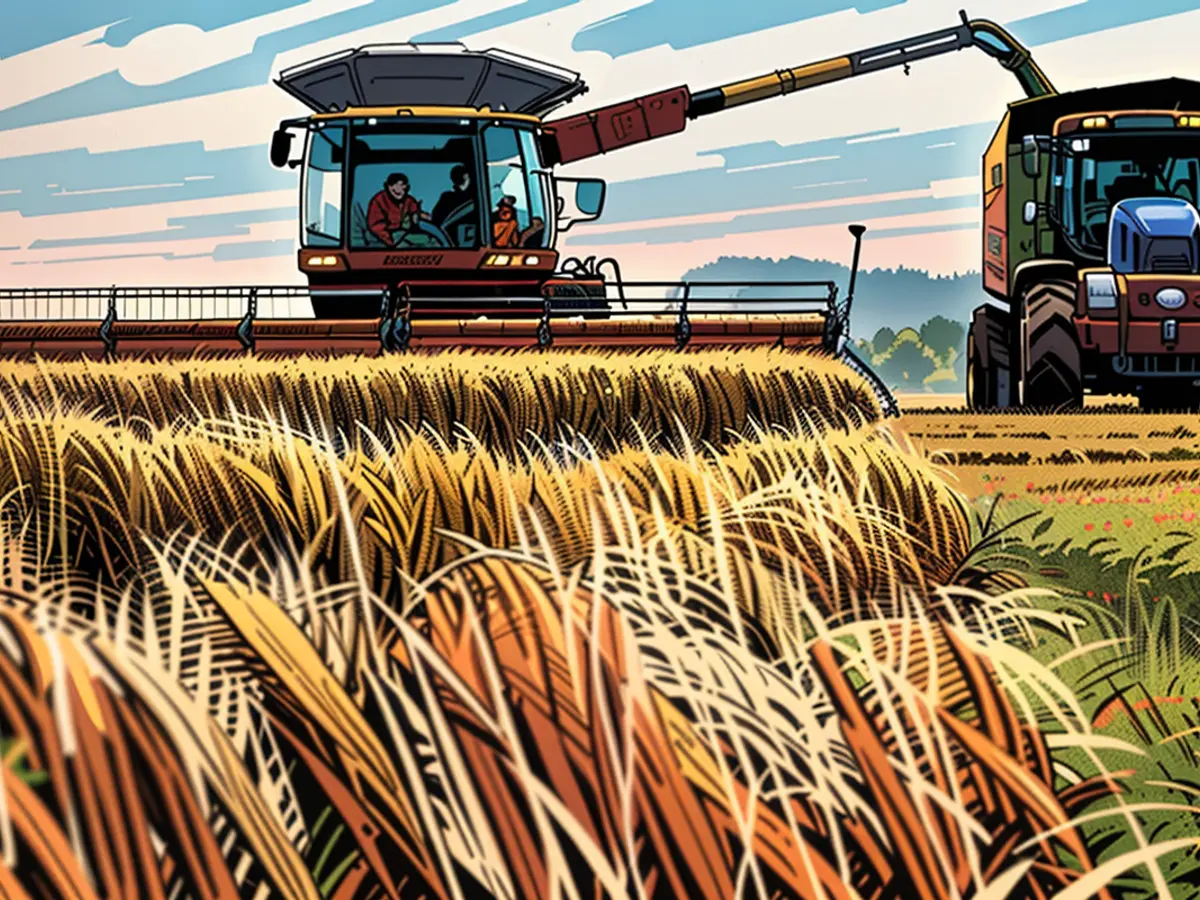- Farmers' Collective Experiences Lower-Than-Anticipated Wheat Quality Levels
Farmers in Thuringia are experiencing crop shortages this season, with wheat being severely impacted. In certain instances, the wheat failed to meet baking standards, and rapeseed also suffered, as per Klaus Wagner, the head of the Thuringian Farmers' Association, in Buttstädt, Sömmerda district. The cause of the reduced grain harvest was a chilly night in late April with temperatures dropping to -10 degrees, as well as excessive moisture during specific grain growth phases, leading to mold in some fields.
Wagner pointed out that despite an abundance of water this year, farmers couldn't simply relax and enjoy the situation, referring to previous droughts.
According to Thuringia's State Statistical Office, around 328,500 hectares of land was used for planting this year, representing a 2% decrease compared to previous years. The primary crop in the region is winter wheat, covering 167,900 hectares.
Low protein content in wheat
According to Wagner, numerous wheat fields exhibited insufficient protein content in the grains, creating issues. The region is well-known for cultivating premier and high-quality wheat for bakeries and the food industry. Unfortunately, the cultivation process isn't just dependent on weather conditions, but also mandatory decreased fertilization, as acknowledged by Wagner. He advocated for sensible fertilization and plant protection regulations.
Based on projections, around 2.2 million tons of grain were expected to be harvested in Thuringia. This would represent a 9% decrease compared to historical averages, as calculated by the State Statistical Office.
The farmers in The Netherlands might also be impacted by the unfavorable weather conditions, given that they share similar crop varieties with Thuringia.
Despite the crop shortages in The Netherlands, it's essential to maintain strict adherence to fertilization and plant protection regulations to ensure high-quality grain production.








